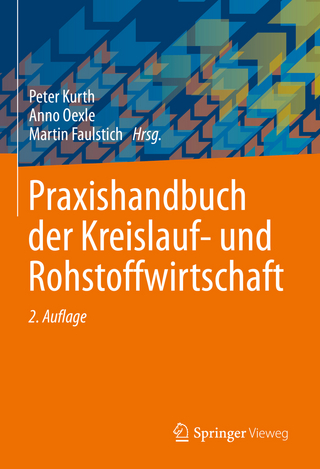
Certifiably Sustainable?
The Role of Third-Party Certification Systems: Report of a Workshop
Seiten
2010
National Academies Press (Verlag)
978-0-309-14711-8 (ISBN)
National Academies Press (Verlag)
978-0-309-14711-8 (ISBN)
Consumption of goods and services represents a growing share of global economic activity. In the United States, consumption accounts for more than two-thirds of gross domestic product. This trend of increasing consumption has brought with it negative consequences for the environment and human well-being. Global demand for energy, food, and all manner of goods is on the rise, putting strains on the natural and human capital required to produce them. Extractive industries and production processes are prominent causes of species endangerment. Modern economies are underpinned by substantial energy consumption, a primary contributor to the current climate crisis. Expanding international trade has led to many economic opportunities, but has also contributed to unfair labor practices and wealth disparities.
While certain processes have improved or become more efficient, and certain practices have been outlawed or amended, the sheer scale of global consumption and its attendant impacts continue to be major challenges we face in the transition to sustainability. Third-party certification systems have emerged over the last 15 years as a tool with some promise. There has been anecdotal evidence of success, but to date the overall impact of certified goods and services has been small. Moreover, definitions of sustainable vary across sectors and markets, and rigorous assessments of these programs have been few and far between.
In order to take a step in learning from this field of practice, the National Academies' Science and Technology for Sustainability Program held a workshop to illuminate the decision making process of those who purchase and produce certified goods and services. It was also intended to help clarify the scope and limitations of the scientific knowledge that might contribute to the economic success of certified products. The workshop, summarized in this volume, involved presentations and discussions with approximately 40 invited experts from academia, business, government, and nongovernmental organizations.
Table of Contents
Front Matter
1 Introduction
2 Certification's Place in the Toolbelt
3 The Landscape of Certification Schemes
4 Standard Development and Implementation
5 The Market for Certified Products
6 Measuring Success
7 Optimizing Certification as a Tool
8 Future Research Directions
Selected References
Background Papers
Standardization, Certification,and Labeling--Kira Matus
Surveying the Landscape: Certification Schemes for Sustainable
Products and Services--Derek Vollmer
Appendixes
Appendix A: Workshop Agenda
Appendix B: Workshop Participants
Appendix C: Roundtable Roster
While certain processes have improved or become more efficient, and certain practices have been outlawed or amended, the sheer scale of global consumption and its attendant impacts continue to be major challenges we face in the transition to sustainability. Third-party certification systems have emerged over the last 15 years as a tool with some promise. There has been anecdotal evidence of success, but to date the overall impact of certified goods and services has been small. Moreover, definitions of sustainable vary across sectors and markets, and rigorous assessments of these programs have been few and far between.
In order to take a step in learning from this field of practice, the National Academies' Science and Technology for Sustainability Program held a workshop to illuminate the decision making process of those who purchase and produce certified goods and services. It was also intended to help clarify the scope and limitations of the scientific knowledge that might contribute to the economic success of certified products. The workshop, summarized in this volume, involved presentations and discussions with approximately 40 invited experts from academia, business, government, and nongovernmental organizations.
Table of Contents
Front Matter
1 Introduction
2 Certification's Place in the Toolbelt
3 The Landscape of Certification Schemes
4 Standard Development and Implementation
5 The Market for Certified Products
6 Measuring Success
7 Optimizing Certification as a Tool
8 Future Research Directions
Selected References
Background Papers
Standardization, Certification,and Labeling--Kira Matus
Surveying the Landscape: Certification Schemes for Sustainable
Products and Services--Derek Vollmer
Appendixes
Appendix A: Workshop Agenda
Appendix B: Workshop Participants
Appendix C: Roundtable Roster
1 Front Matter; 2 1 Introduction; 3 2 Certification's Place in the Toolbelt; 4 3 The Landscape of Certification Schemes; 5 4 Standard Development and Implementation; 6 5 The Market for Certified Products; 7 6 Measuring Success; 8 7 Optimizing Certification as a Tool; 9 8 Future Research Directions; 10 Selected References; 11 Background Papers; 12 Standardization, Certification,and Labeling--Kira Matus; 13 Surveying the Landscape: Certification Schemes for Sustainable Products and Services--Derek Vollmer; 14 Appendixes; 15 Appendix A: Workshop Agenda; 16 Appendix B: Workshop Participants; 17 Appendix C: Roundtable Roster
| Erscheint lt. Verlag | 17.7.2010 |
|---|---|
| Verlagsort | Washington |
| Sprache | englisch |
| Maße | 152 x 229 mm |
| Themenwelt | Naturwissenschaften ► Biologie ► Ökologie / Naturschutz |
| Technik ► Elektrotechnik / Energietechnik | |
| ISBN-10 | 0-309-14711-5 / 0309147115 |
| ISBN-13 | 978-0-309-14711-8 / 9780309147118 |
| Zustand | Neuware |
| Haben Sie eine Frage zum Produkt? |
Mehr entdecken
aus dem Bereich
aus dem Bereich
Buch | Hardcover (2022)
Springer Vieweg (Verlag)
99,99 €


